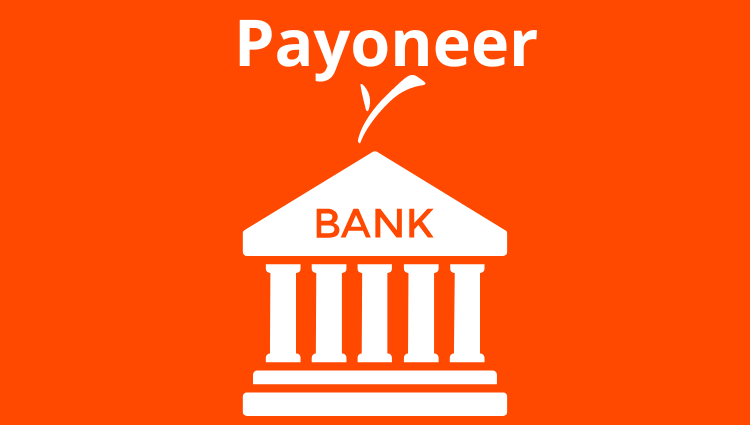Table of Contents
- Introduction
- Overview of Payoneer
- Key Features
3.1 Global Reach and Multi-Currency Support
3.2 Payment Receiving and Sending
3.3 Integration with Marketplaces and Platforms
3.4 Payoneer Prepaid MasterCard
- User Experience
4.1 Account Setup
4.2 Interface and Usability
4.3 Customer Support
- Security and Compliance
5.1 Fraud Prevention Measures
5.2 Compliance with Financial Regulations
- Fees and Pricing Structure
6.1 Transaction Fees
6.2 Account Fees
6.3 Currency Conversion Fees
- Comparisons with Competitors
7.1 PayPal
7.2 Stripe
7.3 TransferWise (now Wise)
- Use Cases and Benefits
8.1 Freelancers and Small Businesses
8.2 Large Enterprises
8.3 E-commerce Sellers
- User Testimonials
- Future Outlook and Developments
- The Verdict: Why Payoneer Stands Out
- FAQ Section
1. Introduction
In the digital age, managing cross-border transactions and global payments efficiently has become crucial for businesses and freelancers alike. Payoneer, a global payment platform, has emerged as a significant player in this space, offering a robust solution for those seeking to streamline their financial transactions. This review provides an in-depth exploration of Payoneer’s features, usability, and overall value, highlighting why it has garnered a positive reputation among users.

Payoneer simplifies the complex world of international payments, enabling users to send and receive funds seamlessly across borders. This comprehensive review delves into the platform’s functionalities, security measures, fee structure, and more, presenting a positive outlook on how Payoneer can benefit various types of users.
2. Overview of Payoneer
Payoneer is a financial services company that facilitates international payments and money transfers. Founded in 2005, the company has established itself as a reliable and innovative solution for individuals and businesses looking to manage their global financial transactions. Payoneer offers a suite of services designed to meet the diverse needs of its users, including a multi-currency account, payment receiving and sending capabilities, and a prepaid MasterCard.
One of the standout features of Payoneer is its ability to provide users with access to a global network of payment options, allowing for seamless transactions in multiple currencies. This functionality is particularly beneficial for freelancers, e-commerce sellers, and businesses operating in different countries. Payoneer’s platform integrates with various marketplaces and platforms, further enhancing its utility and appeal.
3. Key Features
3.1 Global Reach and Multi-Currency Support
Payoneer’s global reach is a significant advantage for users who require international payment capabilities. The platform supports over 150 currencies, allowing users to receive payments in their local currency or convert them as needed. This feature is invaluable for businesses and freelancers working with clients or partners around the world, as it eliminates the need for multiple accounts and currency exchanges.
The ability to hold and manage multiple currencies within a single account streamlines financial management and reduces the complexity of handling cross-border transactions. Users can also make payments in various currencies, further enhancing the platform’s flexibility.
3.2 Payment Receiving and Sending
Payoneer offers several ways to receive and send payments, making it a versatile tool for managing financial transactions. Users can receive payments via their Payoneer account from a range of sources, including marketplaces, clients, and other Payoneer users. The platform supports direct bank transfers, ACH payments, and global payment service transfers, providing users with multiple options for accessing their funds.
Sending payments through Payoneer is equally straightforward. Users can transfer funds to other Payoneer accounts, pay for services, or make purchases using their Payoneer MasterCard. The platform’s user-friendly interface ensures that these transactions are completed efficiently and securely.
3.3 Integration with Marketplaces and Platforms
Payoneer’s integration with various online marketplaces and platforms is a key feature that sets it apart from competitors. The platform supports popular marketplaces such as Amazon, eBay, and Etsy, allowing sellers to receive payments directly into their Payoneer account. This integration simplifies the payment process and ensures that funds are available promptly.
Additionally, Payoneer integrates with major e-commerce platforms, such as Shopify and Magento, providing businesses with a seamless way to manage their online sales and payments. This level of integration enhances the platform’s utility for online sellers and businesses operating in the digital space.
3.4 Payoneer Prepaid MasterCard
The Payoneer Prepaid MasterCard is another notable feature of the platform. This card provides users with a convenient way to access their funds and make purchases globally. The card can be used for online and in-store transactions, offering a practical solution for users who need to spend their earnings.
The Payoneer MasterCard is also useful for managing business expenses, as it allows for easy tracking and control of spending. Users can monitor their card activity through the Payoneer account interface, providing greater visibility and management of their finances.
4. User Experience
4.1 Account Setup
Setting up a Payoneer account is a straightforward process. Users can sign up online by providing basic information and verifying their identity. The registration process is designed to be user-friendly, with clear instructions and support available if needed.
Once the account is set up, users can begin receiving and sending payments immediately. The account dashboard provides an intuitive interface for managing transactions, checking balances, and accessing account settings. Overall, the setup process is efficient and designed to minimize any potential hassles.
4.2 Interface and Usability
Payoneer’s interface is designed with usability in mind. The dashboard is well-organized, providing users with easy access to essential features and information. The platform’s layout is intuitive, making it simple for users to navigate and manage their accounts.
The usability of Payoneer is further enhanced by its mobile app, which offers similar functionality to the web interface. The app allows users to manage their accounts on the go, providing flexibility and convenience for those who need to handle transactions while away from their computers.
4.3 Customer Support
Customer support is a critical aspect of any financial service, and Payoneer excels in this area. The platform offers multiple support channels, including email, phone, and live chat. The support team is responsive and knowledgeable, providing assistance with any issues or questions that users may have.
Payoneer also provides a comprehensive help center with FAQs, guides, and tutorials. This resource is valuable for users who prefer to find answers on their own or need additional information about the platform’s features and functionalities.
5. Security and Compliance
5.1 Fraud Prevention Measures
Security is a top priority for Payoneer, and the platform employs robust fraud prevention measures to protect user accounts and transactions. Payoneer uses advanced encryption technology to safeguard sensitive data and employs sophisticated algorithms to detect and prevent fraudulent activity.

The platform also offers features such as two-factor authentication (2FA) to add an extra layer of security to user accounts. These measures ensure that users’ funds and personal information are well-protected from potential threats.
5.2 Compliance with Financial Regulations
Payoneer adheres to strict financial regulations and industry standards to ensure compliance and maintain the highest level of security. The platform is regulated by various financial authorities, and it follows anti-money laundering (AML) and know-your-customer (KYC) practices.
By complying with these regulations, Payoneer demonstrates its commitment to maintaining a secure and trustworthy financial environment for its users. This level of compliance is essential for users who require confidence in the integrity of their financial transactions.
6. Fees and Pricing Structure
6.1 Transaction Fees
Payoneer’s fee structure is designed to be transparent and competitive. The platform charges fees for certain types of transactions, including receiving payments, currency conversions, and withdrawing funds. The specific fees vary depending on the type of transaction and the currencies involved.
While fees are a consideration, Payoneer’s pricing is generally competitive compared to other payment platforms. The platform provides detailed information about its fee structure, allowing users to understand the costs associated with their transactions.
6.2 Account Fees
In addition to transaction fees, Payoneer charges account fees for certain services. These fees may include account maintenance fees or fees for specific account features. Users should review the fee schedule to understand the costs associated with their accounts.
Despite these fees, many users find that the benefits and features offered by Payoneer outweigh the costs. The platform’s value proposition, including its global reach and multi-currency support, often justifies the associated fees.
6.3 Currency Conversion Fees
Currency conversion fees are another aspect of Payoneer’s pricing structure. When converting funds between currencies, Payoneer charges a fee based on the amount being converted and the exchange rate. This fee is a standard practice among payment platforms and is important for users who deal with multiple currencies.
Payoneer’s exchange rates are competitive, and the platform provides users with transparency regarding the fees associated with currency conversion. This transparency helps users make informed decisions about their transactions.
7. Comparisons with Competitors
7.1 PayPal
When comparing Payoneer with PayPal, several key differences emerge. PayPal is a well-established payment platform with a broad user base and a similar range of features. However, Payoneer offers a more focused solution for international payments and multi-currency management.
Payoneer’s integration with various marketplaces and e-commerce platforms is a notable advantage for online sellers. Additionally, Payoneer’s fee structure can be more favorable for certain types of transactions, particularly those involving large amounts or multiple currencies.
7.2 Stripe
Stripe is another competitor in the payment processing space, known for its developer-friendly features and focus on online payments. While Stripe excels in providing customizable payment solutions for businesses, Payoneer offers a more comprehensive global payment solution with multi-currency support.
Payoneer’s prepaid MasterCard and integration with various marketplaces also differentiate it from Stripe. For users who require a versatile payment platform with a global reach, Payoneer may offer additional benefits compared to Stripe.
7.3 TransferWise (now Wise)
TransferWise, now known as Wise, focuses on providing low-cost international money transfers with transparent pricing. While Wise is known for its competitive exchange rates and low fees, Payoneer offers a broader range of financial services, including payment receiving and e-commerce integration.
Payoneer’s multi-currency account and prepaid MasterCard provide added functionality that Wise does not offer. For users seeking a comprehensive payment platform with global capabilities, Payoneer may be the preferred choice.
8. Use Cases and Benefits
8.1 Freelancers and Small Businesses
Freelancers and small businesses benefit greatly from Payoneer’s global reach and multi-currency support. The platform simplifies the process of receiving payments from international clients, eliminating the need for multiple accounts and currency conversions.
Payoneer’s integration with freelance marketplaces and its ability to manage payments in various currencies make it a valuable tool for individuals and businesses working with clients around the world. The platform’s prepaid MasterCard also provides a convenient way to access and spend earnings.
8.2 Large Enterprises
Large enterprises can take advantage of Payoneer’s scalability and comprehensive financial solutions. The platform’s ability to handle high-volume transactions and support for multiple currencies makes it suitable for businesses with global operations.
Payoneer’s integration with various e-commerce platforms and marketplaces further enhances its utility for large enterprises. The platform’s robust security measures and compliance with financial regulations provide additional assurance for businesses managing significant financial transactions.
8.3 E-commerce Sellers
E-commerce sellers benefit from Payoneer’s seamless integration with popular online marketplaces and e-commerce platforms. The platform’s ability to receive payments directly from these platforms streamlines the payment process and ensures timely access to funds.
Payoneer’s multi-currency account and competitive fees also contribute to its appeal for e-commerce sellers. The platform’s global reach allows sellers to manage transactions with international customers and suppliers effectively.
9. User Testimonials
User testimonials highlight the positive experiences of Payoneer’s diverse user base. Many users praise the platform for its ease of use, global reach, and customer support. Freelancers and small businesses often commend Payoneer for simplifying international payments and providing valuable financial tools.
Large enterprises and e-commerce sellers also express satisfaction with Payoneer’s comprehensive features and integration capabilities. Overall, the positive feedback from users reflects the platform’s effectiveness in meeting a wide range of financial needs.
10. Future Outlook and Developments
Payoneer continues to evolve and adapt to the changing landscape of global payments. The platform is likely to expand its range of services and features to meet the growing demands of its users. Future developments may include enhanced integration with emerging marketplaces, additional financial products, and improvements to the user experience.

The company’s commitment to innovation and its focus on addressing user needs suggest that Payoneer will remain a significant player in the global payment space. Users can expect continued improvements and updates that enhance the platform’s functionality and value.
11. The Verdict: Why Payoneer Stands Out
Payoneer stands out as a comprehensive and versatile payment platform that caters to a wide range of users. Its global reach, multi-currency support, and integration with various marketplaces and platforms make it a valuable tool for managing international payments. The platform’s user-friendly interface, robust security measures, and competitive fee structure further enhance its appeal.
For freelancers, small businesses, large enterprises, and e-commerce sellers, Payoneer offers a range of features that address diverse financial needs. The platform’s positive user feedback and commitment to innovation underscore its effectiveness and reliability. Overall, Payoneer’s comprehensive solution for global payments and financial management positions it as a leading choice in the payment processing industry.
12. FAQ Section
1. What is Payoneer?
Payoneer is a financial services platform that facilitates international payments and money transfers. It offers features such as multi-currency accounts, payment receiving and sending, and a prepaid MasterCard.
2. How does Payoneer work?
Payoneer allows users to receive payments from international clients and marketplaces, manage funds in multiple currencies, and make payments or purchases using the Payoneer Prepaid MasterCard. Users can access their funds via bank transfers, global payment service transfers, or direct transfers to other Payoneer accounts.
3. What are the fees associated with Payoneer?
Payoneer charges fees for certain types of transactions, including receiving payments, currency conversions, and withdrawing funds. The specific fees vary depending on the transaction type and currencies involved. Users should review the fee schedule for detailed information.
4. Is Payoneer secure?
Yes, Payoneer employs advanced encryption technology and fraud prevention measures to ensure the security of user accounts and transactions. The platform also complies with financial regulations and industry standards to maintain a secure financial environment.
5. How do I set up a Payoneer account?
To set up a Payoneer account, users need to sign up online by providing basic information and verifying their identity. The registration process is straightforward, and users can start receiving and sending payments once their account is set up.
6. Can I use Payoneer for e-commerce transactions?
Yes, Payoneer integrates with various online marketplaces and e-commerce platforms, allowing users to receive payments from sales and manage transactions effectively. The platform’s multi-currency support and competitive fees make it suitable for e-commerce sellers.
7. What is the Payoneer Prepaid MasterCard?
The Payoneer Prepaid MasterCard is a card that allows users to access their funds and make purchases globally. It can be used for online and in-store transactions, providing a convenient way to spend earnings and manage business expenses.
8. How does Payoneer compare to other payment platforms?
Payoneer offers a comprehensive global payment solution with multi-currency support, integration with marketplaces, and a prepaid MasterCard. Compared to competitors like PayPal, Stripe, and Wise, Payoneer provides additional features and benefits for managing international payments and financial transactions.

